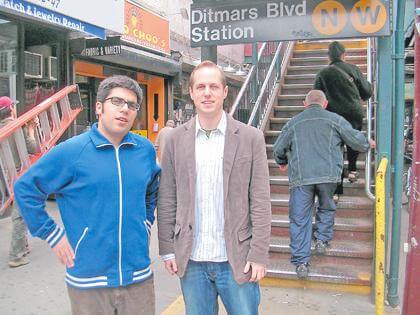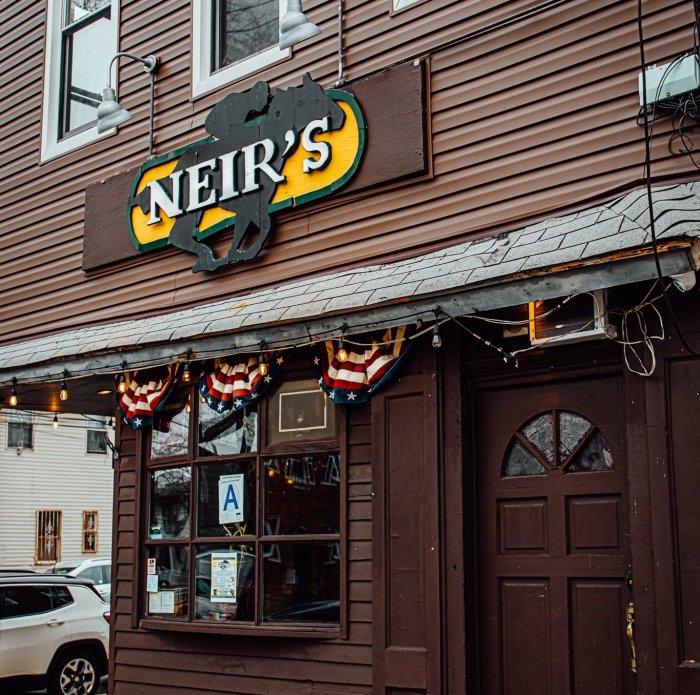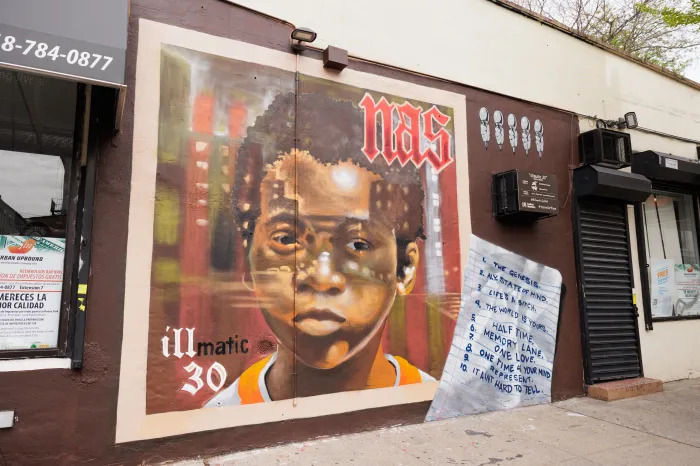By Nathan Duke
For three producers of an Astoria-based Web show that may soon make the transition to network television, getting dumped by their girlfriends was the greatest thing that ever happened to their careers.
Brian Amyot, 26, and Angel Acevedo, 25, both of Astoria, and Steve Tsapelas, 27, of Forest Hills, developed the concept for their hit online show “We Need Girlfriends” after the trio were dumped shortly after graduating from college several years ago. The show, which has become a runaway success on YouTube and MySpace and can also be viewed at www.ragtagfilms.net, follows the trials and tribulations of Henry, Tom and Rod, three Astoria-based college graduates who look for love in all the wrong places after their girlfriends cut them loose.
Tsapelas said he and his friends were also inspired to write the show after watching the HBO series “Entourage,” in which the lead characters have little difficulty hooking up with attractive women. He said “We Need Girlfriends” is a male “Sex and the City,” but minus the sex.
“It's 'No Sex in the Suburbs,' ” he said. “I think we all have a good sense of humor, so we are able to make fun of ourselves and each other.”
In fall 2006, the trio put out a casting call on Craigslist, a classified ads site, and auditioned actors for the Web-based show. The first episode premiered online on Nov. 1, 2006, and was followed by 10 more episodes, all of which appeared on the first day of each subsequent month at the show's online venues.
At first the show had difficulty drawing fans on YouTube, but its creators dabbled in viral marketing, setting up fictitious MySpace accounts for its characters.
“We used MySpace to build an audience,” Amyot said. “At that time, the only people watching the show were our friends.”
“We Need Girlfriends” has since drawn an estimated 3 million viewers to its three online venues, he said.
Tsapelas has been the show's primary writer, while Amyot directs most of the episodes and Acevedo shoots and edits. The trio, who had full-time jobs at the time of the show's creation, applied an on-the-fly style of shooting, relying more on the kindness of local businesses for their locations rather than city permits.
Aside from Acevedo and Amyot's Astoria apartment, where much of the show's action takes place, “We Need Girlfriends” has also shot in neighborhood eateries, such as French restaurant 718, and Laundromats, including House of Sudz on 23rd Avenue.
Last fall, CBS bought the series' 11 episodes, which range from six minutes to 10 minutes in length and cost an estimated $200 each to produce, and the show's creators are currently sketching out a pilot episode for network television, Amyot said. The pilot will be shot this summer and, based on its success with the network, more episodes could follow, he said.
Amyot said the pilot will not be shot in the low-budget, lo-fi digital video used for the Web episodes.
“The camera we used looks great online, but it is not broadcast quality,” he said.
But the show's stars, who worked for food, will not return if “We Need Girlfriends” is picked up by CBS, as the network plans to recast their roles.
Amyot said he has been surprised by the show's rapid success.
“We didn't think this would happen,” he said. “We originally wanted it to lead into some films. But as our fan base increased, we thought it would be a good idea for a television show.”
The collaborative team has already developed a new Web-based show, “I Live With My Parents,” which is still in the conceptual stage. Although Hollywood has finally come calling on the trio, Tsapelas said they will not turn their backs on their Internet fan base.
“We like the freedom of the Internet and how cheaply and quickly you can do it,” he said. “We also like the interaction with the fans.”
The show's creators thank their ex-girlfriends in the credits of the final episode, and Amyot has since reunited with his ex since the show's inception.
“Their break-up with us was the best thing and the worst thing,” he said. “At the time, we thought we'd never survive. But it ended up helping our careers.”

































